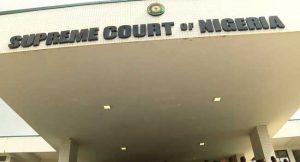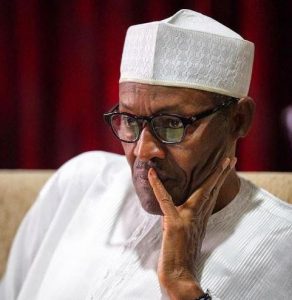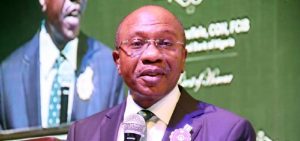
Guardian / Nigeria: Central Bank of Nigeria (CBN) Governor Godwin Emefiele yesterday offered an insight into why oil marketers and dealers in petroleum products have been facing difficulties in getting foreign exchange to procure fuel overseas.
Emefiele, whose representative appeared before the Nnanna Igbokwe-led House of Representatives Adhoc Committee on the Reduction of Petrol Prices explained that the progressive decline in the amount of foreign exchange available to the CBN was responsible for the apex bank’s inability to meet the demands of oil importers and marketers .
The inability of the marketers to get forex to import fuel could lead to the scarcity of the product that may push up prices, and increase the cost of production of goods and services.
Represented by his deputy, Mrs. Sarah Alade, the CBN boss said:
“There is shortage of foreign exchange. In 2013 to 2014, the Federal Government used to get $2 billion to $3 billion monthly and the CBN in the interbank sold about 30 per cent of that. About 70 per cent came from the foreign investors. Today, we get $600 million, $700 million. Nothing comes in from interbank. About $1.5 million is sold everyday and $1 billion is done in December to clear matured letters of credit. It’s not the way it used to be.”
Also, the Minister of State for Petroleum Resources, Dr. Ibe Kachikwu identified the full utilisation of the local refineries as the panacea to the problem of shortages associated with foreign exchange and fuel supply.
He assured that by 2019, the nation’s comatose refineries would be able to contribute about eight million out of over 20 million litres of petrol consumed in the country daily.
Kachikwu stated the Federal Government had perfected a strategy to attract foreign investors to partner the Nigeria National Petroleum Corporation (NNPC) by initiating a model to repair the country’s refineries within two years.
On why International Oil Companies (IOCs) are selling foreign exchange to marketers directly, he explained that the arrangement was made to ease the forex scarcity being experienced by importers who collect between 35 and 40 per cent of the foreign exchange in the CBN.
Meanwhile, plans are underway by the CBN to raise $50billion or about N15trillion for the development of biofuel initiatives. At the sensitisation workshop on biofuel development in Abuja, Emefiele said the fund would be sourced from parastatals and development banks, including the Bank of Industry, Bank of Agriculture and the proposed Development Bank of Nigeria.
Represented by Lawrence Ode of the Research Department of the CBN, Emefiele said the government envisaged equity funding arrangements to be known as biofuel industry equity fund of $50 billion.
He hinted that when established, the fund is expected to provide credit on favourable terms to meet the peculiarities of the industry and the country.
The CBN chief submitted that the Nigerian Biofuel Policy and Incentives Draft document has outlined funding as well as incentives arrangements for firms involved in biofuel production.
The Executive Secretary of the Petroleum Products Pricing Regulatory Agency (PPPRA), Victor Shidok, said the agency would continue to have an interface with relevant stakeholders in order to come up with a clear strategy on how biofuel industry can be developed for the benefit of the economy.
Shidok disclosed that there is still no timeline for the takeoff of the policy. “We are wary of the challenges that would prop up on the way during the implementation process. We hope that in the next two years, if this policy is gazetted and get the ratification of the necessary authorities, we should be able to see feasible signs of the production of ethanol and biofuel materials.”




